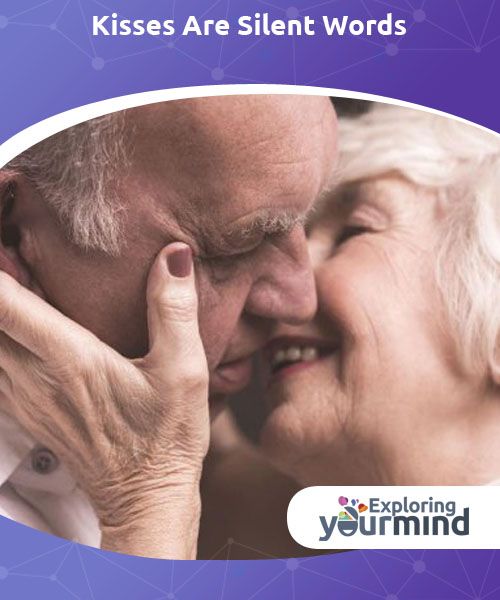We kissed furtively, lustfully, gently, timidly, greedily and some fortunately. We kiss when the sun warms the asphalt and when the stars take position in a night cinema where we are the protagonists. Fairy tale characters kiss to awaken princesses or transform frogs. There are kisses of commitment, and even kisses of betrayal like Judas’ in Jesus.
One way or another, kissing produces a physiological reaction that includes hundreds or thousands of neural messages. They can also cause euphoria reactions or sexual arousal; they are a small box full of aromas that cannot be ignored with each opening of the box.
- “The act of kissing is more complex than it seems: it transmits powerful messages to the brain.
- To the body and to the couple.
- “Chip Walter?.
In childhood, kisses contain a paradox. Children usually receive several kissing requests a day, many of whom are satisfied with real pleasure, however sometimes they also suffer the tyranny of adults, who do not respect them when they say they do not want to kiss a certain person or at that time, neither children nor adults should be forced to kiss, otherwise the kiss loses much of its essence and can even directly affect the self-affirmation of the Children.
Teenagers are perhaps the most important for a kiss and wonder: how do you do it?How will I feel?, will I know how to do it when the time comes?, even after meeting the person they deem appropriate, they can sleep several nights anticipating that moment, we have all been through this and we continue to go a thousand laps. like a ball until the time comes: either with the person waiting, or with another, at the right time or at the most inastrous, we hardly forget it.
We weren’t lost because it was good or bad, but because of the anticipation of the excitement of that moment. Any activity improves with practice and kisses are no exception. One way or another, we’re not as sure as teenagers. According to recent studies, a bad first kiss may be enough to end a promising relationship.
Some researchers believe that kisses on the mouth were born with evolutionary utility, they observed that this type of kissing greatly facilitated the process of selection of couples, a lot of information is exchanged during a kiss, so it quickly gives us the necessary material. accept or reject a couple Our touch, our sense of smell and certain postural aspects, such as the tilt of the face, which we treat unconsciously.
There is another hypothesis for the birth of kisses that is not so attractive, and that has to do with the custom that primate mothers chew food to feed their children, hypotheses supported, among other researchers, by zoologist Desmond Morris.
Unlike other animals, we do not have a specific part of our body designed to detect pheromones, however, there are indications that we also use chemical information that we collect by smell, this hypothesis would explain, for example, why the menstrual cycle of the woman Cohabitation is synchronized, or why the smell of men with a stronger immune system is more attractive. Thus, the approach given with kisses offers a favorable position to collect this chemical information.
Why the lips? Two factors make lips the perfect choice for passionate kisses: they have many nerve endings and the skin around them is very thin, that is, it is a place where the touch produces a lot of sensations without the intensity of contact being strong.
Besides, every passionate kiss we give is involved 5 cranial nerves out of the 12 we have, what does that mean?Our nervous system is configured in such a way that the information we receive through a kiss circulates across many nerve roads in our body until we reach our “operations center”.
Like all tactile information, the information that comes from a kiss reaches a part of our brain called sensory homoncula, this part somehow represents the entire touch-sensitive body surface, so on this type of map the lips occupy a large space, especially when compared to other parts of our body that have a similar density of nerve endings.
According to a 2007 study by Gallup and his collaborators, men and women interpret the kiss differently in the evolution of a relationship; for men, a prolonged and intense kiss is the prelude to a more intimate approach, the beginning of a sexual relationship. women interpret it differently. Intense and prolonged kisses symbolize and reinforce the idea that they have chosen a good match for a long-term relationship.
On the other hand, Hill and Wilson’s research has concluded that while it is true that kisses can provoke great excitement when accompanied by certain circumstances, it seems that women need more kisses to achieve the same level of arousal as men.
Studies have shown that in men and women, and in similar proportions, kisses reduce stress by reducing cortisol levels in the body.
On the other hand, although it may seem curious, kissing is not a common custom in couples of all societies; for example, for much of Chinese society, kissing on the lips can be as reprehensible as cannibalism for us (d?Enjoy, 1897). In addition, another anthropologist, in a more recent study, estimated that about 10% of humanity does not kiss on the lips.
Finally, I would like to point out that kissing is more of a social heritage than a natural act, it is our societies, with our norms and conceptions, that have probably produced changes in our biology and established certain types of customs so that kissing is a common behavior among couples as we know it.
One way or another, or even just because they reduce stress, he kisses a lot.

